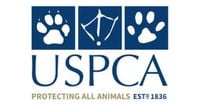Dog fighting—a brutal, clandestine blood sport—has long been shrouded in secrecy, with those involved going to extraordinary lengths to conceal their activities from authorities and the public. But in a rare turn of events, a digital blunder by one of its participants has thrown open the doors to one of Europe’s largest dog fighting networks, revealing a world of cruelty, greed, and shocking ingenuity in hiding illegal operations.
According to a BBC investigation published on September 29, 2025, a simple mis-click by a member of a secret online dog fighting forum exposed a trove of graphic match reports, videos, and photographs depicting the harrowing reality of the sport. The leak quickly found its way to animal welfare charities, including the League Against Cruel Sports (LACS) and the Ulster Society for the Prevention of Cruelty to Animals (USPCA), who harvested a vast haul of intelligence. This cache offered a rare glimpse into a sprawling, international syndicate operating in the shadows from the UK across mainland Europe.
“I can’t really put into words actually, it was just golden,” Russ Middleton, a former police officer and now Head of Intelligence for LACS, told BBC Spotlight. He described the leak as an unprecedented insight into the global perspective of dog fighting: “There was a whole range of different dogfighters in there, all collaborating, chatting, sharing videos.” Middleton went so far as to call it “one of the biggest in Europe.”
The BBC’s six-month investigation, aided by this digital slip, uncovered fighting kennels in the most unlikely of places. One was tucked inside a busy housing estate in County Armagh, surrounded by families and their pets. Another, perhaps more astonishingly, was found hidden in the grounds of Shane’s Castle Estate, one of Northern Ireland’s most famous stately homes. There, Boneyard Kennels operated in secrecy, housing and training about 40 fighting pit bulls. The estate’s management told BBC News NI that it was opposed to dog fighting and shocked to learn of the operation, insisting that it would have stopped it had it known.
The investigation identified David Patterson, a mixed-martial arts coach from County Antrim, as the man behind Boneyard Kennels. When confronted, Patterson denied any involvement in dog fighting, stating he was not a member of any international network and often looked after dogs for others due to his interest in fitness. The BBC also found evidence linking Craig Kitson, an associate of Patterson’s, to the network under the alias “Spongebob.” Kitson was listed as a referee and handler in several dog fighting match reports. He, too, denied active participation and insisted he was not the individual identified as Spongebob. Kitson expressed deep contrition over a notorious video where he was seen biting the ear of his deceased dog, stating he had not been responsible for its death.
Dog fighting is illegal across the UK—not just the fights themselves, but also owning, training, trading, or even filming fighting dogs without good reason. Yet, as experienced veterinarian David Martin told the BBC, “It is going on in probably every major town and city in the UK. It is enormous amounts of abuse and cruelty at every stage.” The League Against Cruel Sports has received more than 600 reports of dog fighting since 2024, a figure that has jumped by over 50% in just two years. Still, campaigners say the true scale is impossible to quantify due to the sport’s secrecy.
For those who investigate these crimes, the scale and brutality are staggering. Over 19 months, the USPCA’s Special Investigations Unit worked with LACS to uncover new evidence of an international dog fighting ring stretching from Northern Ireland to the Netherlands. Their findings, detailed in a new BBC Spotlight documentary, included 29 fight reports, information on handlers, referees, and dogs, and confirmation that at least three animals were killed in the fights. Heather Weir, CEO of the USPCA, called the revelations “a powerful wake-up call” to confront an “illegal, barbaric blood sport driven by cruelty, greed and perverse pleasure.”
The USPCA condemned the “horrific realities” of dog fighting still occurring in Northern Ireland and called for all available resources to be used to bring perpetrators to justice. “The vast majority of people here love animals,” Weir said, “but this minority is inflicting unthinkable suffering. We urge anyone with information to contact the USPCA, confidential helplines or enforcement agencies. Together, we can end this shameful abuse.” She added, “Cruelty thrives in silence. Speak out. Protect animals. End dog fighting.”
Infiltrating the network required patience and nerve. The BBC team, posing as dog fighters, eventually won the trust of syndicate members and arranged a meeting in Amsterdam to buy a fighting dog. There, they met Zoltan Borbe, known by the alias NFK Kennels, who was secretly filmed boasting about his dogs’ prowess. “I have one grand champion female that maybe I sign here for the seventh match,” Borbe said, unaware he was speaking to undercover journalists. In the world of dog fighting, a grand champion is a dog that has won at least five matches. Borbe sent videos of the two-year-old pit bull he was selling—a black dog named Ruby—showcasing her “gameness,” or fighting determination. Later, Borbe denied any involvement in dog fighting, claiming he fabricated the story to sell dogs.
Ruby’s fate, for once, took a more hopeful turn. Because pit bulls are a banned breed in the UK, she was placed in a rehabilitation center in the Netherlands. There, lead therapist Hella Van Den Beemt described the delicate process: “It’s just a lot of observation. To be fair towards the dog, you always have to go in with an open heart and just give the dog every room that it needs and you will bond with the dog. They always have a chance, but there are a lot of factors that we have to consider in that. If it’s really strongly embedded in a character, then we have to calculate the risk.”
The BBC’s reporting has made clear that dog fighting is not a relic of the past, nor is it confined to the criminal underworlds of distant lands. It is, as the USPCA insists, happening on our very doorstep. The challenge now, campaigners and investigators agree, is to keep the spotlight shining, ensure the public stays vigilant, and bring those responsible to justice. For the animals caught in the crossfire, every report, every tip, and every undercover operation could mean the difference between life and death.




